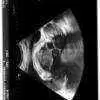-
Welcome to Celiac.com!
You have found your celiac tribe! Join us and ask questions in our forum, share your story, and connect with others.
-
Celiac.com Sponsor (A1):
Celiac.com Sponsor (A1-M):
-
Get Celiac.com Updates:Support Our Content
Trying To Figure Out My Sleep Problem
-
Get Celiac.com Updates:Support Celiac.com:
-
Celiac.com Sponsor (A17):
Celiac.com Sponsor (A17):
Celiac.com Sponsors (A17-M):
-
Recent Activity
-
- trents replied to Sarah Grace's topic in Related Issues & Disorders26
Headaches / Migraines and Hypoglycaemia
This article does not address migraines at all. Yes, red wine and sulfites are often mentioned in connection with migraine triggers. With me, any kind of alcoholic beverage in very modest amounts will reliably produce a migraine. Nitrous oxide generators, which are vaso dialators, also will give me migraines reliably. So, I think most of my migraines... -
- knitty kitty replied to Sarah Grace's topic in Related Issues & Disorders26
Headaches / Migraines and Hypoglycaemia
Excessive dietary tyrosine can cause problems. Everything in moderation. Sulfites can also trigger migraines. Sulfites are found in fermented, pickled and aged foods, like cheese. Sulfites cause a high histamine release. High histamine levels are found in migraine. Following a low histamine diet like the low histamine Autoimmune Protocol diet,... -
- trents replied to Sarah Grace's topic in Related Issues & Disorders26
Headaches / Migraines and Hypoglycaemia
Then we would need to cut out all meat and fish as they are richer sources of tyrosine than nuts and cheese. Something else about certain tyrosine rich foods must be the actual culprit. -
- Scott Adams replied to Russ H's topic in Post Diagnosis, Recovery & Treatment of Celiac Disease1
KAN-101 Treatment for Coeliac Disease
I agree that KAN-101 looks promising, and hope the fast track is approved. From our article below: "KAN-101 shows promise as an immune tolerance therapy aiming to retrain the immune system, potentially allowing safe gluten exposure in the future, but more clinical data is needed to confirm long-term effects." -
- Scott Adams replied to miguel54b's topic in Related Issues & Disorders1
Body dysmorphia experience
Thank you so much for having the courage to share this incredibly vivid and personal experience; it's a powerful reminder of how physical ailments can disrupt our fundamental sense of self. What you're describing sounds less like a purely psychological body dysmorphia and more like a distinct neurological event, likely triggered by the immense physical stress...
-





Recommended Posts
Archived
This topic is now archived and is closed to further replies.